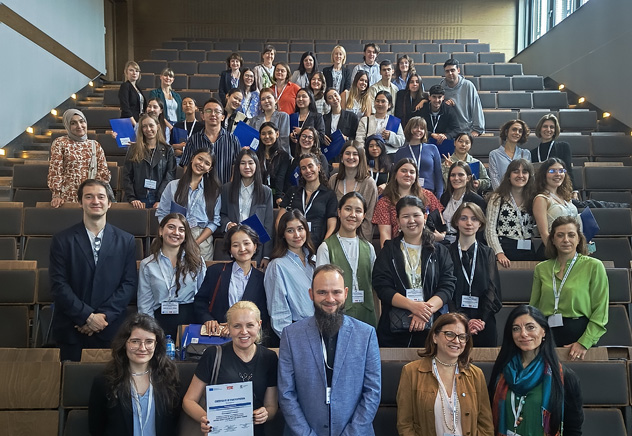
‘Critical ARts Education for Sustainable societies’ project coming to an end

Five events marked the end of the journey of the Critical ARts Education for Sustainable societies (CARE/SS) project: four local events in Cyprus, Greece, Malta and Spain and one International Conference in Poznan, Poland.
During these events, the partners engaged the audience in presentations and roundtable discussions, resulting in fruitful conversations about the role of arts education in Higher Education Institutions and schools, especially about socially engaged arts and education through the arts to address pressing sustainability issues.
Project CARE/SS is about widening access to the arts through online and blended learning and enhancing arts education with elements of education for sustainable development that will promote important sustainability competencies, including creative thinking, critical and systemic thinking, reflection, and action, along with the development of skills, attitudes, and values. In particular, the project aimed to enable higher education institutions' digital transformation and support the development and delivery of teacher training programs. Twelve trainings took place that empowered more than 400 teachers (pre-service and in-service) in arts teaching and thus strengthened their teaching profile. At the same time, the trainees developed their digital and soft skills, and gained valuable experiences in learning-teaching situations within a digital environment which can be applied to primary/secondary education.. Thus, through the content of the training, CARE/SS responds to the need to support educational programs that enhance social and intercultural competencies, critical thinking and creativity. Project CARE/SS reached more than 4 000 people during its activities. Education through the arts, especially with the integration of education for sustainable development (particularly the social and cultural aspects), reflects the transition into 21st-century education, where emphasis is placed on an integration of competencies, knowledge, values and attitudes.
Frederick University was the project's coordinator, led by Professor Victoria Pavlou, member of the Faculty of the Department of Education.
The project lasted for 28 months (March 2022 to June 2024), and was implemented by partners Frederick University, Cyprus (Coordinator), the Aristotle University of Thessaloniki, Greece, the University of Malta, Malta, the University of Barcelona, Spain, and Adam Mickiewicz University, Poland.
All project results are freely available as e-books on the project website, along with information about dissemination activities and publications derived from the project. To download the project results, visit the project's website.

